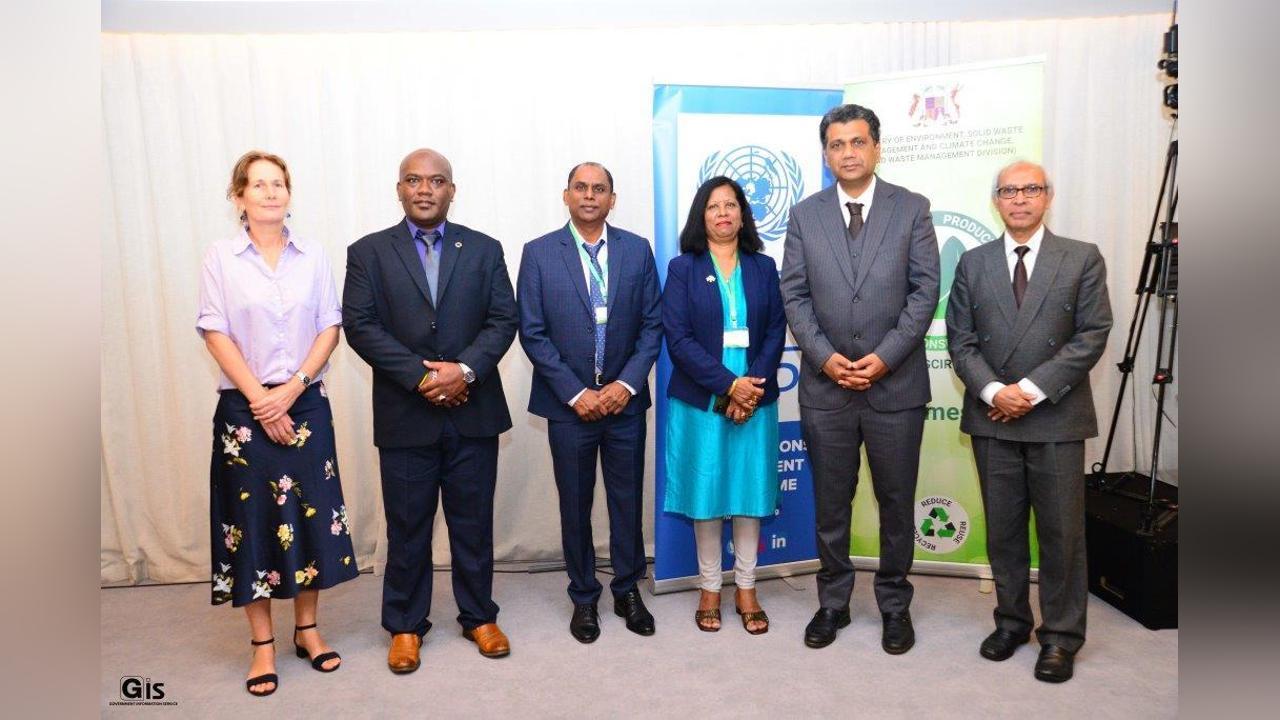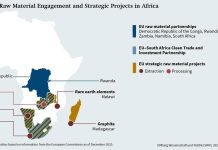Africa-Press – Mauritius. A validation workshop on ‘Segregation of Solid Wastes at source in Mauritius’ opened, this morning, at the Caudan Arts Centre in Port Louis. The main objective is to review the assumptions, requirements and the applicability of regulations to finalise the draft Regulation on segregation of solid waste at source.
The Vice-Prime Minister, Minister of Local Government and Disaster Risk Management, Dr Anwar Husnoo; the Minister of Environment, Solid Waste Management and Climate Change, Mr Kavydass Ramano; the Head of Environment Unit, UNDP Mauritius and Seychelles, Mr Jean Lindsay Azie; and other personalities were present.
In his address, the Vice-Prime Minister recalled that a consultative workshop was organised two weeks back with stakeholders of the industry for the development of draft Regulation for source segregation.
This initiative, he underlined, is evidence of Government’s substantial effort to achieve the Sustainable Development Goal 12.5 to reduce waste generation through prevention, reduction, recycling, and reuse.
Vice-Prime Minister Husnoo highlighted the impact of increased waste on the environment adding that the Mare Chicose Landfill has reached saturation with some 500,000 tonnes of solid wastes for the year 2022.
It is therefore imperative to adopt smart handling of wastes through the use of latest technology, he said. He called on the population to adopt a more responsible role and for a change in mindset and attitude to ensure the successful implementation of the Regulation for a cleaner, greener, and safer Mauritius.
As for the new Waste Management Strategy and Action Plan implemented in 2021, he said, it sets a policy direction towards an ecological transformation of green transition to circular economy-based sustainable waste management.
The waste segregation regulatory framework puts obligation on all waste generators from domestic, commercial to industrial and local authorities as well as other stakeholders involved in waste segregation process, he pointed out.
He further observed that Government invests some Rs 1.8 billion yearly for waste management adding that more finance will be required for the successful transition to the circular economy.
He underlined the crucial role of local authorities in managing waste collection across the country adding that they will now have to review their roles as they will be key players in the circular initiatives.
For his part, the Environment Minister underlined that one of the main pillars in the Waste Management Strategy and Action Plan is having in place appropriate regulations.
Source segregation, he stressed, reduces the upstream sorting cost and ensures that downstream recyclers receive clean feedstock, thus improving their ability to capture the value from post-consumer material streams.
The new Regulation, he stated, will fill the regulatory gap and boost the recycling sector, thereby giving a new impetus to the circularity in waste management.
’’My Ministry will work closely with the local authorities to put in place awareness and sensitisation programmes that will provide clear and simple instructions to waste generators in sorting their waste materials’’, he said.
He also elaborated on some of the catalytic waste-to-resource projects initiated by the Ministry including the setting up of major integrated waste processing facilities; feasibility study to set biogas plant for anaerobic digestion of organic wastes; and setting up of civic amenity centres.
Other similar projects are in the pipeline, he added. They comprise development of Regulations for management of construction and demolition wastes. As for the Head of Environment Unit, UNDP Mauritius and Seychelles, he deplored the issue of increasing wastes in Mauritius and around the globe.
Mauritius recorded around 500,000 tonnes of wastes in 2022 adding that the figures are expected to escalate to 650,000 tonnes by 2030. Waste management has become a very pressing issue, he said.
He therefore emphasised on the need to move to a circular approach which will eliminate waste and contribute to combat pollution. Mr Azie reiterated the support of the UNDP to the Government of Mauritius to address waste management while ensuring a smooth transition to circular economy. This new approach will improve environment aesthetic, offer new job opportunities and contribute to a more sustainable environment, he pointed out.
For More News And Analysis About Mauritius Follow Africa-Press







